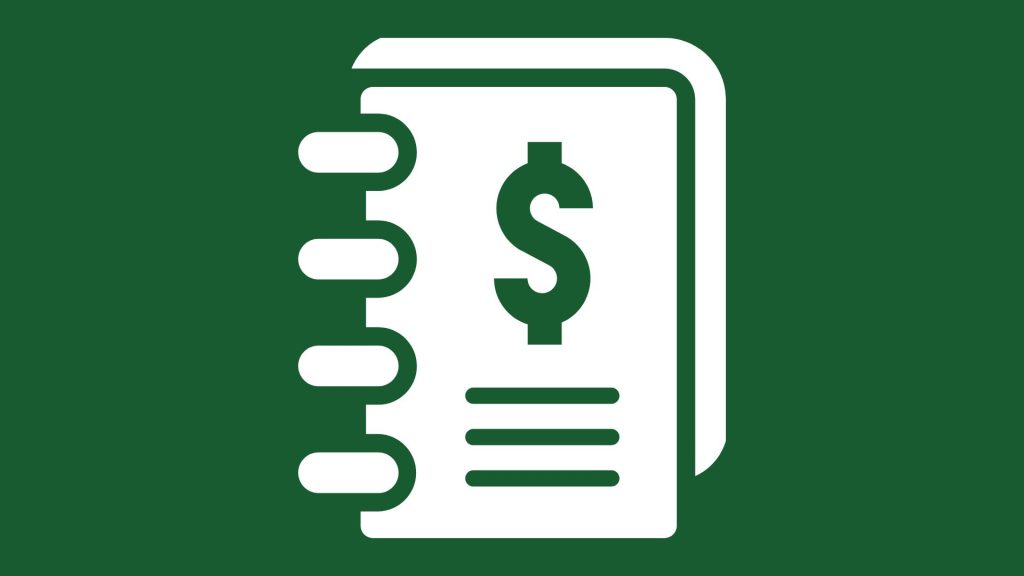Many small business owners spend more time balancing the books than all the other responsibilities that come with being the boss. If you’re asking yourself, “Do I need a bookkeeper?,” read on to learn how you can determine if hiring bookkeeping services is the best option for you.
What Does A Bookkeeper Do?
A bookkeeper is responsible for keeping track of a company’s financial records. They are responsible for maintaining accurate ledgers, preparing financial statements, and reconciling bank accounts. Bookkeepers also provide essential data to help management make sound decisions on budgeting and cash flow management.
Consider these four questions if you’re considering bookkeeping services:
1. Have You Separated Your Personal and Business Finances?
It’s not uncommon to start a small business with personal money and credit. Many entrepreneurs self-fund their businesses to avoid taking on debt from a bank or lender. However, mixing business finances with personal makes it nearly impossible to evaluate the financial health of your business.
Business accounts are to be used exclusively for expenses relating to your work. For example, if you have a line of credit for your bakery, it should only be used for things like ovens and mixers, or services like laundry and pest control. When you can clearly see your business expenses, you can better manage your budget, avoid overspending, and allow you to plan for future expenses.
Keeping your finances separated ensures accurate accounting, which in turn reduces risks. When tax time comes, everything about your income and expenses is scrutinized. When your personal and business finance are comingled, you can be denied many deductions that can save you hundreds or even thousands of dollars.
2. Do You Have a Tracking System that Works?
Keeping records of all your transactions is essential to good financial management. But the effort means nothing without an effective, efficient way to track your cash flow. A good tracking system should always provide a complete picture of your financial situation. It should show where you stand at any point in time and make it easy to track changes in your finances over time.
The type of business you run is a big factor in determining your bookkeeping system. For example, a for-profit LLC has different reporting needs than a nonprofit 501(c)3 organization or an individual freelancer. Moreover, you need to determine the purpose of your tracking—you may just want to track income and expenses or perform an audit of your company’s financial statements.
Spreadsheets
Spreadsheets are great tools for all kinds of financial tracking and management. Virtually every computer comes with some spreadsheet software pre-installed, so they are easy to customize with formulas and macros. Additionally, there are many free online resources, like Google Sheets and OpenOffice Calc, that work as well as Microsoft Excel or Apple Numbers.
Although they’re readily available, spreadsheets have limitations that make them less than ideal for managing finances. They can be cumbersome when it comes to recording transactions, adding up data, and creating digestible reports. And sharing a spreadsheet with someone else can be difficult and not very secure. So, while it’s not a terrible idea to use a spreadsheet for financial management, it requires focused attention to detail.
Software and Apps
Software shows you how to track your spending, create budgets, set financial goals, and manage investments. Many platforms provide online banking support, which allows you to download transactions and manage your money anywhere, anytime. All you need is an internet connection and any laptop, desktop, tablet, or smartphone.
The ease of use and constant access make personal finance software a great choice for busy entrepreneurs—particularly those who can’t afford to build or expand their support staff. While keeping tabs on business cash flow, digital assistance from a system like Wave, Quickbooks, or Xero can give you time to focus on other things.
3. Are you growing?
Are you taking on more employees? Getting a bigger office or buying retail space? Launching a new product? A bookkeeper can help you understand the impact of big, business-changing choices.
A bookkeeper uses their intimate knowledge of a client’s cash flow to help set budgets for future expenses, like payroll increases and new leases for equipment and space. They can also help you quickly assess the profitability of each venture and advise on how to maximize returns. That makes their advice especially helpful when moving into unexplored areas. For example, if your successful food truck business is moving to a brick-and-mortar location, a bookkeeper can help with guidance on loans and other financing resources.
4. Are you ready to bring in collaborators/partners to help solve problems & grow your business?
When your small business grows, it can mean becoming more than a sole proprietor. Taking on partners and collaborators can bring positive change. It also means that your finances can (and most likely will) be scrutinized by your new colleagues.
Bookkeepers can help you analyze the risks and rewards of taking on new partners or investing in new products or services. create budgets, track expenses, generate financial reports, and reconcile bank accounts. They will also help you ensure that your accounting records are up-to-date and accurate, so you have a clear understanding of how your new partnership is helping or hurting you.
When Should You Hire Bookkeeping Services?
Outsourcing financial management allows many business owners to focus their time and attention on other critical parts of the business, like sales or production. In that way, hiring a bookkeeper is like “buying time.” Like all of your business expenses, you’ll need to analyze the costs and benefits of bookkeeping services. Determine how much your time is worth, and figure out how many “dollars” you spend on bookkeeping per month. Once you treat the time you devote to bookkeeping as an actual expense in cash, you’ll have a better idea of whether you should keep doing it.
When Should You Fire Bookkeeping Services?
If you hire a bookkeeper and they don’t deliver a clear financial picture of your business, it’s time to reconsider your choice. Though it can be hard to end an important partnership, such decisions must be taken to ensure your venture thrives. Incorrect reports and sloppy work from an inattentive bookkeeper aren’t valuable assets to your strategic decision-making process. If their work can’t be trusted, they should be let go.
The Bottom Line
A competent and experienced bookkeeper is a valuable asset when you want to take your business to the next level. They can provide financial insights that will help you make informed decisions and stay one step ahead of the competition. In the past, bookkeeping services were typically only offered to businesses with large budgets. But now, there are many affordable and easy-to-use bookkeeping services available online, in addition to user-friendly software. No matter what you choose, it needs to be an option that is manageable, so that you can maintain solid & accurate financial records.

